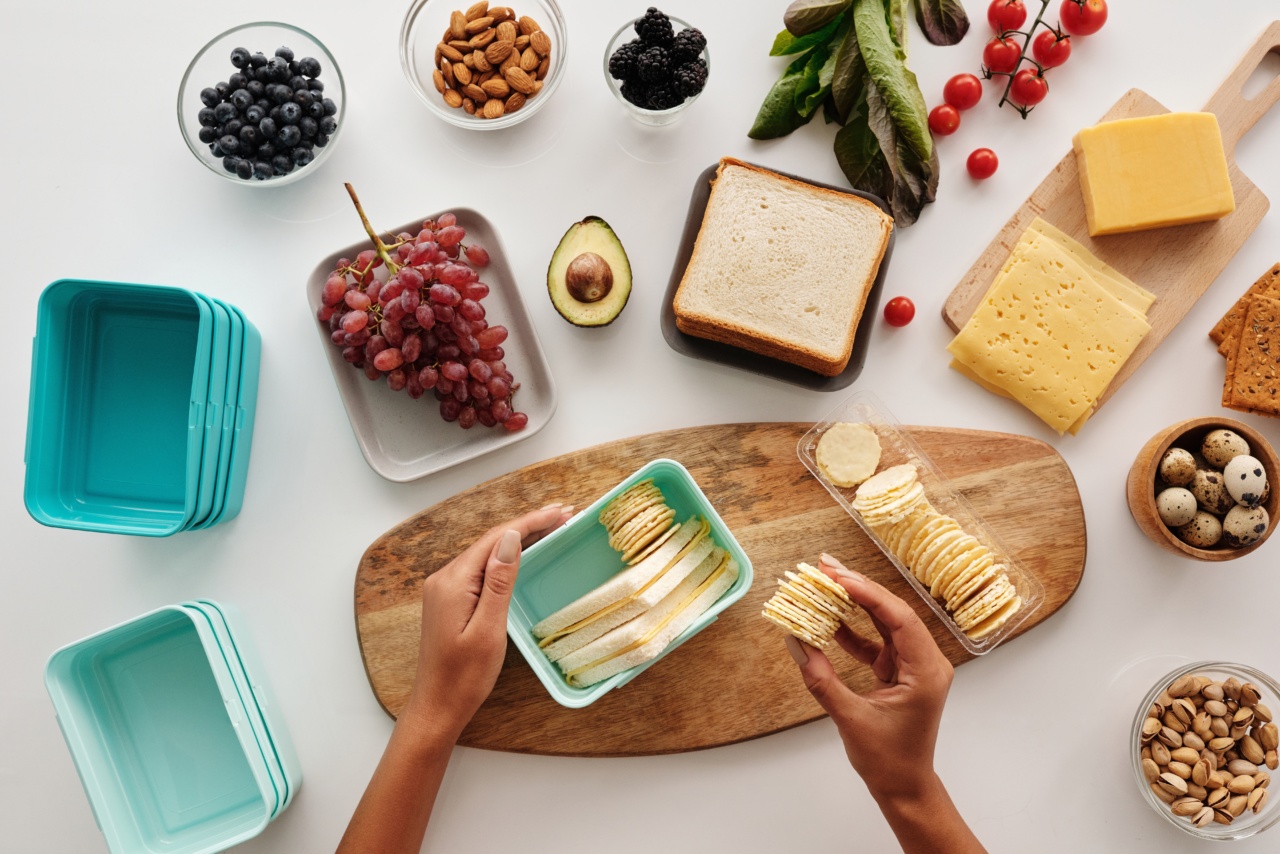Living a long and healthy life is something that everyone wishes for. While genetics play a role in determining lifespan, lifestyle factors such as diet and exercise are also significant determinants of longevity.
The good news is that there are certain foods that have been linked to a longer lifespan, and incorporating these foods into your diet is a simple way to improve your chances of living a long and healthy life.
1. Berries
Berries are among the healthiest foods you can eat. They are packed with nutrients, including antioxidants, which help to protect your cells against damage caused by free radicals.
Berries have also been linked to a reduced risk of chronic diseases such as heart disease, diabetes, and cancer. Some popular berries that you can incorporate into your diet include blueberries, strawberries, raspberries, and blackberries.
You can start your day by adding berries to your breakfast, such as topping your cereal or oatmeal with a handful of mixed berries.
2. Green Leafy Vegetables
Green leafy vegetables, such as spinach, kale, and collard greens, are some of the most nutrient-dense foods on the planet.
They are rich in vitamins, minerals, and antioxidants, and have been linked to a reduced risk of chronic diseases such as heart disease and cancer. One easy way to incorporate green leafy vegetables into your diet is by making a salad. You can use spinach or mixed greens as a base and add other vegetables and fruits of your choice for added flavor and nutrition.
3. Nuts and Seeds
Nuts and seeds are an excellent source of healthy fats, protein, fiber, vitamins, and minerals. They have been linked to a reduced risk of various chronic diseases, including heart disease, cancer, and diabetes.
Some popular nuts and seeds that you can incorporate into your diet include almonds, walnuts, cashews, chia seeds, flaxseeds, and pumpkin seeds. You can snack on a handful of mixed nuts or seeds as a healthy and satisfying snack, or add them to your meals as toppings or ingredients.
4. Whole Grains
Whole grains are an important source of fiber, vitamins, and minerals. They have been linked to a reduced risk of chronic diseases such as heart disease and diabetes. Examples of whole grains include brown rice, quinoa, oats, and whole wheat.
You can swap refined grains such as white rice and white bread with whole grains for added health benefits. You can also try adding whole grains to your salads or bowls for added fiber and nutrients.
5. Fish
Fish is an excellent source of protein, omega-3 fatty acids, and other nutrients. Omega-3 fatty acids have been linked to a reduced risk of heart disease, stroke, and other chronic diseases.
Some of the healthiest types of fish include salmon, mackerel, sardines, and trout. You can incorporate fish into your diet by grilling, baking, or broiling it for a healthy and delicious meal.
6. Yogurt
Yogurt is a great source of probiotics, which are beneficial bacteria that live in your gut. Probiotics have been linked to a variety of health benefits, including improved digestion and a stronger immune system.
Yogurt is also a good source of protein, vitamins, and minerals. You can add yogurt to your breakfast or snack on it as a healthy and filling snack. Just be sure to choose yogurts that are low in added sugars and preservatives.
7. Olive Oil
Olive oil is a healthy source of monounsaturated fats, which are good for your heart and brain. It also contains antioxidants called polyphenols, which have been linked to a reduced risk of chronic diseases such as heart disease and cancer.
Olive oil is a healthier alternative to other types of oils and can be used for cooking, salad dressings, and dips.
8. Legumes
Legumes such as beans, peas, and lentils are an excellent source of plant-based protein, fiber, and nutrients. They have been linked to a reduced risk of chronic diseases such as diabetes and heart disease.
You can add legumes to your diet by incorporating them into your stews, chili, soups, and salads. You can also snack on roasted chickpeas or add them to your wraps or sandwiches for extra protein and crunch.
9. Tea
Tea is a great source of antioxidants, which help to protect your cells against damage caused by free radicals. Tea has also been linked to a reduced risk of chronic diseases such as heart disease and diabetes.
Green tea, black tea, and herbal teas are all great options. You can enjoy a cup of tea in the morning, afternoon, or evening as a healthy and relaxing beverage.
10. Dark Chocolate
Dark chocolate is not only delicious but also a healthy source of antioxidants and nutrients. It has been linked to a reduced risk of heart disease and other chronic diseases.
Dark chocolate contains cocoa solids, which are rich in flavonoids, a type of antioxidant. You can enjoy a few squares of dark chocolate as a healthy and satisfying dessert.
Conclusion
Incorporating these foods into your diet is a simple way to boost longevity and improve your overall health.
While it’s important to eat a variety of foods to ensure that you get all the nutrients your body needs, adding more of these foods to your diet can have a significant impact on your well-being. Start small by adding one or two of these foods to your meals or snacks each day, and gradually increase your intake over time. Your body will thank you for it!.






























